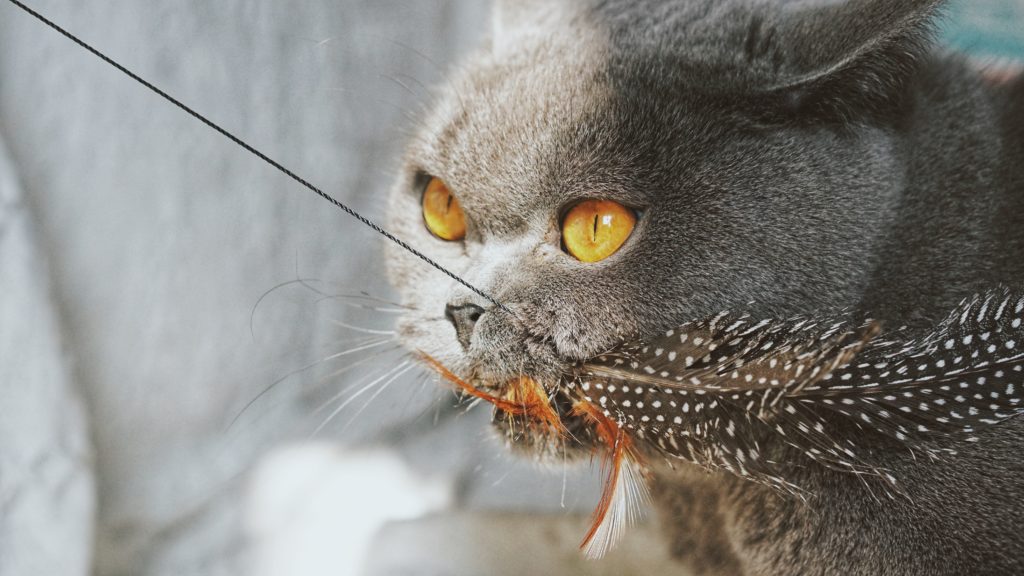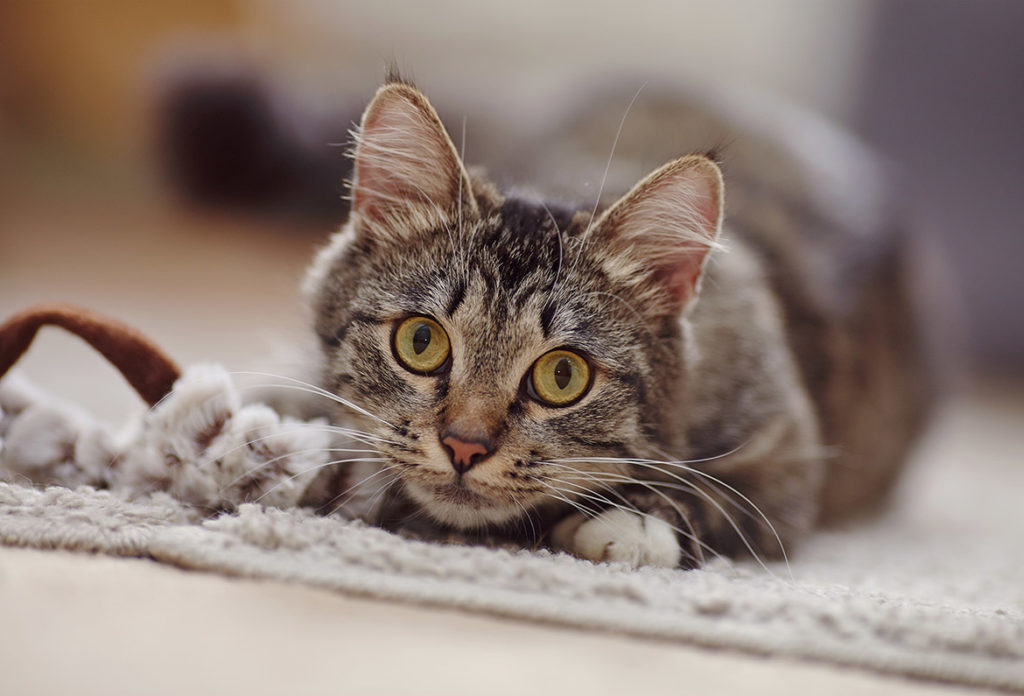
How to Boost Your Cats Confidence
Reduce Behavior Issues by Increasing Confidence in Your Cat
The cat is both predator and prey. The simple explanation is, for cats to feel more confident, they must feel more like predators than prey. Anything we can do as their guardians to help them achieve this, will produce more confident cats and in many case reduce intercat behavior issues that may have arisen in the home.
Background
A cat’s behavior and character are shaped by a complex mix of influences relating to the species, the individual’s genetics and its experiences as a kitten. These elements create the cat’s unique personality: bold, confident, reactive or sociable, for example. Most adult cats, with the appropriate domestic upbringing, are confident enough to face what life throws at them. However, if a cat isn’t exposed to a full range of normal domestic happenings at an early age, it will potentially flee from the most innocuous things.
Some cats are born with a predisposition to anxious behavior and even with the opportunity to socialize at the appropriate age, they fail to learn that domestic life is comparatively free from danger.
A state of anxiety means that the cat experiences an emotion, particularly in unfamiliar situations, that is an apprehensive anticipation of something bad happening. This feeling may increase to fear if a specific stimulus is confirmed, via the cat’s own mental assessment, to be dangerous.
Fear is the innate trigger for the release of adrenaline that prepares the body for tackling life-threatening situations by fighting, escaping, freezing (hoping to remain undetected) or attempting to appease the dangerous adversary. Cats tend to favor the option of escape.
My cat hides under the bed most of the time, especially if there’s lots of activity in the house. Is this normal?
When you take on a cat or kitten it may be quiet and wary for the first few days or even the first few weeks until it gets used to you and its new environment. However, some cats remain very fearful despite a gentle welcome and time to settle in. This can cause their owners great anxiety because they feel the cat is not happy. The cat may run and hide as soon as someone comes into the house or if there is a sudden noise. Many such cats spend a great deal of their time under the bed or on top of the wardrobe, hiding from the world.
A nervous or frightened cat can make a very disappointing pet, especially if the household which has adopted it is a busy and noisy one. They will probably see little of the cat until the children have gone to bed and the adults have settled down quietly in front of the TV in the evening. However, it is important to understand a nervous cat’s expectations of life. Hiding under a bed may seem like a wretched existence but if this is perceived by the cat to be an escape from danger and a safe place then the emotion would be one of relief rather than any directly negative feeling.
As a solitary species, the cat has no pack to back it up if things go wrong – if threatened its best chance of survival is to run away and hide, staying very quiet until the danger has passed. Owners must be able to offer something even more rewarding than this feeling of safety and relief that the cat feels on following its instincts if they want to stop it running. This can be very difficult.
Was my nervous cat ill-treated when it was young as it seems to be terrified of feet?
It is impossible to say that any particular individual wasn’t ill-treated as a kitten but it is more likely that your cat has acquired its nervousness via its genes, lack of early socialization with humans or both. It may appear to be nervous of feet as these are the parts of humans closest to it!
Ways to Boost Confidence in Your Cat
- Create Routines and Rituals (that your cat can count on)
- Everything in a cat’s world runs on time and is on schedule
- Sense of predictability and sense of control for the cat
- Why? Highly territorial and territorial confidence is very important to them
- Cats do not like surprises due to their nature of being both predators and prey animals (always having to be on the lookout)
- Be consistent in behavior modification and how you treat the cat
- All family members on the same page
- Making sure there are enough resources for all the cats in the house
- All cats must feel like there are enough
- No competition for beds, blankets, scratchers, cat trees, litter boxes, food, water, treats, etc.
- Must feel they have ownership over resources
- Make sure space is not overcrowded in the home
- Do not have too many cats for your home
- Having high places and lounge places
- Plenty of high places to explore
- Cats have to be able to climb
- Increase square footage available to them
- Feel like they are in control when above us or other cats
- Lots of extra lounge places
- Daily “Prey Play”
- Helps them feel like they have accomplished something real important (“The Kill”)
- In the wild, they spend approximately 6 hours a day hunting
- When they catch and bite the prey, it releases serotonin in their brain which makes them feel really good
- So, the “prey play” catch part gives them a boost of confidence and the bite reinforces it by releasing the serotonin in their brain (the is key to their confidence!)
- Clicker/Marker Training
- The cat thinks they have trained you, so it gives them a since of control.
- “Look if I high-five her, she will give me a treat!”
- Feeds their need to be in control of things at all times.
- Keeping a Calm & Peaceful Environment
- A cat’s senses (hearing, smell, sight) are significantly more sensitive than ours so we must respect this
- No loud sounds, no yelling, keep music and TV at reasonable level
- No scented litters, candles, room deodorizers, plug-ins, carpet fresheners, etc.
- Scents are overwhelming to a cat
- Repeated exposure cause lung exposure
- A cat’s senses (hearing, smell, sight) are significantly more sensitive than ours so we must respect this
-
- Spend time in hiding place
- Comforts them and challenges them
- Remember to respect their space but quietly spending time close to them reading or working on your phone (no talking on phone) can be helpful
- Give choices
- All resources (food, water, litter boxes, beds, hiding places, cat trees, etc.) in the home are set up with a minimum of 2 exit routes
- Litter boxes – no lids; if high sides, cut 2nd entrance on side of box
- Feeding bowls – no closets, corners
- Opportunity to Explore
- No off limit rooms
- If appropriate, catios, leash walks or stroller rides outside
- Cats are very curious, and they don’t like being told “No”
- Respect Desire for Affection
- Let your cat come to you; don’t force your cat to be a lap cat
- All resources (food, water, litter boxes, beds, hiding places, cat trees, etc.) in the home are set up with a minimum of 2 exit routes
- Spend time in hiding place
Bonus Tip: Food Puzzles
- Leave them around the house
- Fulfills cat’s need for hunting
- They feel accomplished
- DIY Food Puzzle Ideas
Source:
CatTalk Radio Podcast
January 22, 2020
Molly DeVoss, Cat Behavior Solutions



